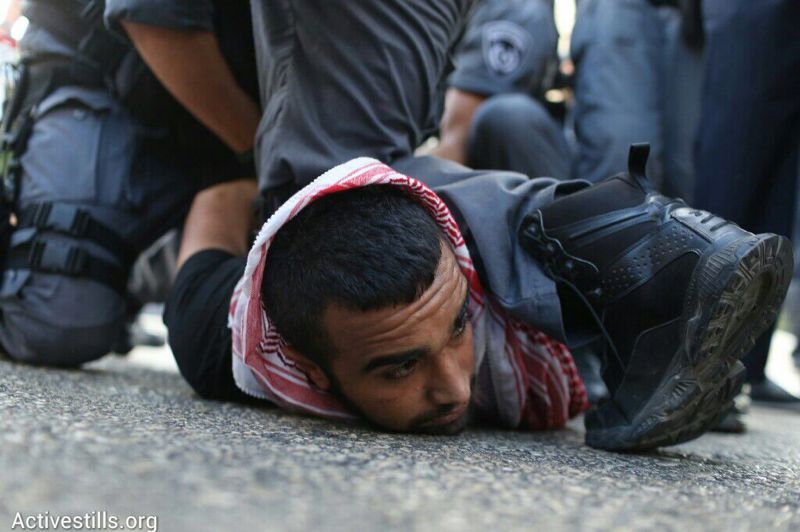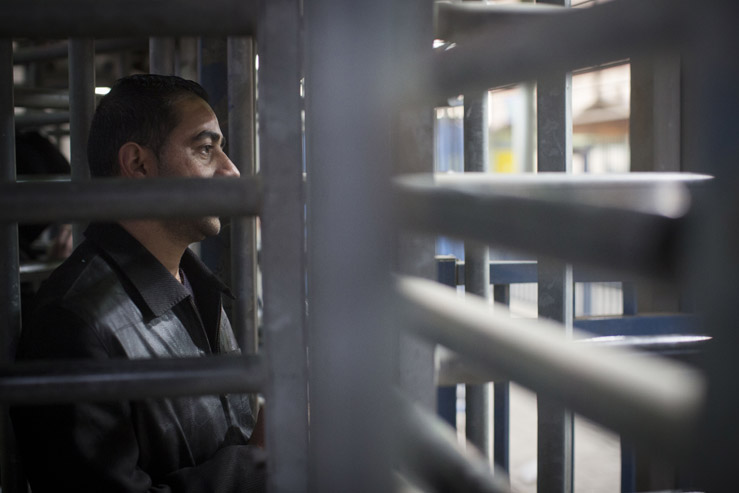The world is not against us — rather, it is at best indifferent to the oppression of Palestinians, and at worst colludes in it, which is why Israelis must inform decent people about what is happening here.

I was invited to attend a series of meetings organized by French activists that were held this week. The participants were involved in Palestine solidarity work, some of them with longstanding ties to Palestinian communities. Several visit Israel-Palestine on occasion, and assist however they can from afar.
And yes, they are ardent supporters of all forms of non-violent struggle, particularly boycott. Every year, at the general meeting of local councils, they invite speakers from Israel-Palestine in order to broaden their perspectives on the Israeli-Palestinian conflict.
I generally think that these kinds of meetings are very important. The occupation is not an internal Israeli matter, and the international community is not merely entitled to know what is happening and to intervene — it has to.
But here in France, amid the endless greenery and against your will, Zionist indoctrination drifts in and quietly pecks away at your thoughts: what makes these people, who live in one of the most peaceful and beautiful places you’ve seen, decide to get involved in the Palestinian struggle? Why this cause specifically? And that damned suspicion that has worked its way into our veins — perhaps they are acting not out of concern for Palestinians, but out of hatred for Israel (or rather for Jews, of the kind it is no longer polite to admit to these days).
During long conversations with the hosts — most of them elderly, and warm, welcoming and exceptionally generous — I set aside these suspicions and listen intently. No, they are not anti-Semites. No, they don’t hate Israel. They are veteran activists who come from a long and steadfast tradition of anti-fascism, and who are appalled at what is happening around them, both in France (especially now, ahead of the elections), and in Palestine, which is currently a hot topic on the French Left.

The couple in whose home I was staying, both retired teachers, are activists in the Palestine solidarity movement. The man has traveled to Israel-Palestine several times, and follows after the situation here with great concern. His grandmother on his mother’s side was Jewish, and his mother was an atheist who fought with the partisans. He, too, is an atheist, and was a communist until he left the party’s ranks in fury.
He brings me a document he received from Yad Vashem, which shows that his cousin was murdered in the Holocaust. As a pro-Palestinian activist, this document is a form of security for the rigorous and intrusive checks he undergoes each time he passes through Ben-Gurion Airport. He grasps the paper reverently, and his eyes moisten as he recounts the history of this branch of the family. Fascism is a bloody curse on humanity, he says.
I spoke at several meetings on this trip. The people who attended know that the media is not giving them a complete picture and want to hear firsthand what is happening in Israel-Palestine. And there is no need to embellish or dramatize the reality, because the reality here is so warped and fraught that the tersest description is enough to relay the depth of the crisis.
Try to tell people about the fairness and morality of the latest raft of laws passed by the Knesset, for example, and see how they respond. No, doing this isn’t fun. You take no delight in talking about the injustices in your country. But I am obligated to speak and they are obligated to listen, so I speak. And, surprisingly, they are anxious about the future of Israeli society itself. They want to know if this is really how we plan to continue, and if this is the society we want to raise our children in.
As part of its war on decency and morality, Israel is vigorously singling out international Palestine solidarity activists as anti-Semitic enemies, and their Israeli counterparts as traitors. It’s easy to give in to this line of thinking, but the world is not against us. In truth, the world is at best indifferent to the ongoing violent oppression of Palestinians; at worst, it actively participates in it.
But as long as there are decent people who understand that taking part in a struggle against oppression, occupation, colonialism and fascism is a moral duty, it is incumbent upon us to give them information they can use in that fight. It’s the least we can do for those who stand alongside Palestinians in their struggle here.
The occupation will not end without significant international involvement, and the border lines drawn between “us’ and “them” are very different from those presented by the State of Israel. For me, the “us” includes Jean-Pierre, who stands tearfully with his cousin’s death certificate from the Holocaust and listens to how Yaqoub Abu al-Qi’an was killed in Umm al-Hiran, trembling in fear and horror at both their fates.
This post was originally published in Hebrew on Local Call. Read it here. Translated by Natasha Roth.


